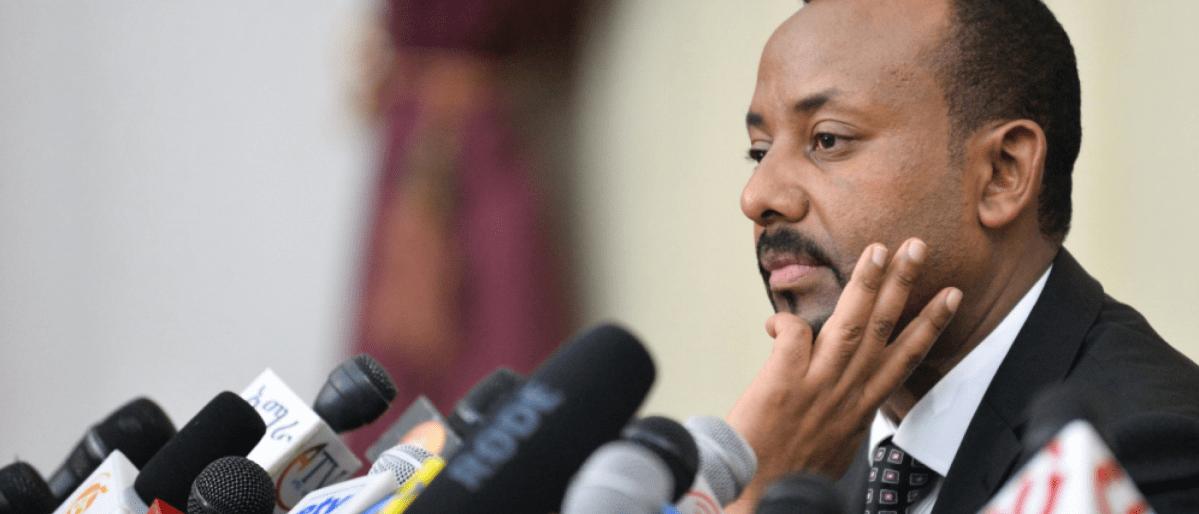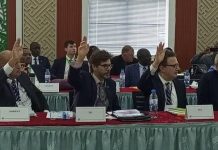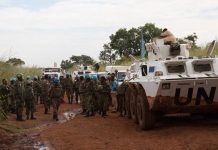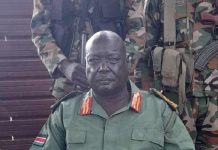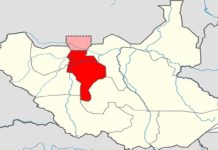Africa-Press – South-Sudan. Ethiopia (alongside “new” Liberia) remains Africa’s nation which wasn’t directly colonised by Europeans. Ethiopia is a nation rich with old Christianity, Islam, cultures, aromatic food and coffee. It is an amazing nation of wonderful people whose late Emperor Haile Selassie’s Pan-African work extended with inspirational African leaders as the late Ghanaian founding father Nkrumah and Tanzania’s great Mwaliimu Julius Nyerere.
That by 25th May 1963 African leaders elected Emperor Selassie to become the first Chairman of the Organisation of African Unity (OAU) with a permanent headquarters in Addis Ababa (means the New Flower in Amharic language). We South Sudanese always grateful to Ethiopia. Our freedom and emancipation as marginalised Sudanese with Emperor Selassie and Ethiopia always runs deep.
Our forefathers fought courageously against Anglo-Egyptian rule and their handing over power to the Quasi Arab Northern Sudanese elite. Citing this, our ancestors fought for our freedoms and equality by Anya Nya One, our first liberation war of 1955-1972 with Ethiopian Emperor Selassie mediating and overseeing the 1st peace known as the “Addis Ababa agreement” which paved way for a semi-autonomous regional government in Southern Sudan. However, this agreement was abrogated in 1983 by Sudanese military dictator Ja’affer Numeri which lead to the rise of SPLM/A war of 1983-2005 after an unsettled lull 10-year of no peace, no equality in the Sudan.
Tragically, another dictator rose in Ethiopia in 1987-1991. (Mengistu Haile Mariam had earlier on suffocated a frail 82 years old Selassie to death. Selassie was the OAU founder). Ethiopians, as Kenyans, Ugandans, Nigerians, Zimbabweans, South Africans… for a long time remained in solidarity with the marginalised South Sudanese and hosted several peace talks. This piece is also an attempt to remind us “a friend in need, is a friend indeed.” The Nile water colonial agreements
We always refer to the Nile agreement in plural of agreements due to two such existing Nile water agreements; the 1929 between Great Britain and Egypt and a latter one between Egypt and Sudan 1959 (4 years after the latter’s independence). The 1929 agreement was signed between Egypt and Great Britain, which represented at the time Uganda, Kenya, Tanganyika (now Tanzania) and Sudan. The 1929 document gave Egypt the right to veto projects higher up the Nile that would affect its water share.
The 2nd one signed between Egypt and Sudan, supplementing the 1929 agreement, gave Egypt the right to 55.5 billion cubic meters of Nile water a year and Sudan 18.5 billion cubic meters per year. However, the Nile Basin nations are ten, namely, Burundi, Democratic Republic of Congo, Egypt, Ethiopia, Kenya, Sudan, Rwanda, Tanzania, Uganda and South Sudan. “Shouldn’t any of them, or they all too have their right share of the Nile waters, to feed their people?” This is THE MOST SECRETLY ASKED QUESTION AMONGST ALL NILE BASIN NATIONS’ CITIZENS, from fishermen, to agriculturists and activists. Only a few leaders would dare ask!
African Politics of Ethnicity, “Ethiopia Chapter” Similar to other African nations, Ethiopia is home to several ethnic communities. For the sake of this brief piece, the case in point are 3 communities; the Oromo at 34.4% (historically marginalized), the Amhara 27% (former dominating community, prior to 1991) and the Tigray 6%. It is TRAGIC and highly disappointing for time and again we see ourselves, African nations suffer from either of two; politicks of dominance and marginalzation thereof, leading to appalling conditions, albeit many would try good old African wisdom, logic and reasoning to sustain unease co-existence, semblance of stability and token of justice.
Increasingly though, politicisation of our communities has become an ugly reality. Some nations’ politicians and military generals, intermittently and where applicable, for instance use elections to fuel ethnic unease, pitting communities against one another, to square personal rivalries and political gains, others literally wage fully fledged wars. Kenya’s land clashes, ethno-regional pacts to hail to power (as to policies and track record of good leadership deeds), South Sudan’s 2013 ethnic polarisation, and so forth. In all earnest, we are increasingly prompted to address “ethnicity and the wayforward for Africa’s type governance”, that sort of conversation must be began in Africa. Ethiopia’s current crisis brings politicks of ethnicity to a core forefront.
“Politicks of ethnicity, does it work?” So, until we address ethnicity in relations to governance, ethnic politicks will continue to play centrally, albeit negatively in Africa. For as long as ethnic and forms of marginalisation policies persist, we are in trouble of disruptions, falling in and and out of wars. Systemic, well coordinated marginalisation policies, practices and economies that consolidate dominance, the marginalised are forced to group, organise and wage wars against the elite status quo ruling class who often hail from dominating ethnicities or become dominating ethnicity after their access to power.
For instance, Ethiopia, historically it has been the Amhara community dominance in politics, economy and education etc. During one of Africa’s most vicious 1974-1991 civil wars, Ethiopia’s then marginalised 6% Tigray’s TPLF organised and worked alongside the EPLF (of Eritrea) and successfully ousted military dictator Mengistu Haile Mariam (an Amhara) in 1991 giving rise to the TPLF rule under former PM Meles Zinawi (a Tigrayan). So, by 1991 one would think that one of Ethiopia’s “smallest communities” as the Tigray, led by a liberation movement the TPLF, finally Ethiopia would be on the path of justice, equality and happiness of their people guaranteed by the law.
SADLY, not! For almost 30 years, the TPLF ruled with a hand fist, censorship, ensured the Tigrayan people dominated politically, economically, educationally, militarily, in foreign service and in international organisations representation. This led to a time bomb unease between all communities. However, the Ethiopians somehow lived side by side one another while focusing in how to get rid of the oppressor; the TPLF ruling party. By mid 2017, the TPLF sensing the Ethiopians on the brink of ethnic and or a national uprise against the TPLF, they decided to hand power “smoothly” to Dr. Ahmed Abiy, FINALLY “one from the historically margainalized majority Oromo” hails to power in 2018.
Did the TPLF think “Abiy was a puppet from the majority Oromo to decorate the premiership to quieten national unease….?” Or did the TPLF leave power smoothly?” Very quickly, PM Dr. Abiy embarked on zealous peace with neighbouring Eritrea (since 1997 at war with Ethiopia), Abiy, a reformist with ambitious plans for Ethiopia. He was awarded a Noble Peace Prize in 2018. But his reforms, equality and justice work were staunchly resisted internally by TPLF, hie swiftly establishes his Prosperity Party early 2019. He has many ambitious plans for Ethiopia, the GERD Dam (the Grand Ethiopian Renaissance Dam). But there’s Egypt with its 1929 and 1959 Nile water agreement granting Egypt majority shares of the waters and some to Sudan (1959). War of words between Egypt and Ethiopia began in 2019.
Former USA President Trump and “his deals” he claimed to have reached “a deal”. There is a video clip dated between 2019-2020, Trump gives the go ahead to Egypt to strike Ethiopia, and that “Egypt has a right to be upset, for how will they (Egyptians) survive without the Nile?” Trump says on the recorded White House video clip [in an audio voice] conference with the now ousted Sudanese PM Dr. Hamdouk, who is also the IGAD Chairman. On observation overtime, Dr. Hamdouk seems to lean toward diplomacy and non confrontational approach over the Ethio-Egypt Nile simmering crisis. Could Dr. Hamdouk’s seemingly non bias stand angered Egyptian President Abdul Fattah Al Sissi to take sides against Dr. Hamdouk and him “siding” with military coup plotters Burhan and Hemedti? One can’t help but wonder.
So, “TPLF an opportunistic factor”, Egypt could easily use its wide network within both Sudan’s NCP elements [Hemedti] who are resisting Dr. Hamdouk’s democratic transformation inroads so that the latter is removed via a military coup? This explains, immediately after attending Dr. Abiy’s inauguration ceremony 4th October 2021, South Sudan’s President Kiir flew to Egypt and rumoured to have “bad mouthed Dr. Abiy”. Salva Kiir himself a strong ally of NCP with his top security personnel Tut Kieu and General Akol Koor. It is worth noting that both Tut Kieu and Hemedti were both groomed by Bashir and his NCP.
In conclusion, for Africa, we should strongly urge the Ethiopian PM and his government to give a respectful audience to the AU peace delegation headed by former Nigerian President Olusegun Obasanjo. Allow Africa to hear your full story fellow reformist and social justice champion Dr. Abiy. Ethiopia’s facts of traditional historical ethnicity dominance is known to many Africans, we also are aware of the Nile factor in the escalation in Ethiopia’s war as well as the Jehadists’ network in the Horn and East Africa and beyond. Please give diplomacy and dialogue a serious chance. This maybe your true peace winning legacy not only for Ethiopia but also for the entire Africa. We have many lessons to learn from Ethiopia today as we always did in the past. Suzanne Jambo is a South Sudanese political activist and leader of Steps.
The views expressed in the ‘OPINIONS & ANALYSIS’ section of Sudans Post are solely the opinions of the writers. The veracity of any claims made are the responsibility of the author not this website. If you want to submit an opinion piece or an analysis please email us here.
For More News And Analysis About South-Sudan Follow Africa-Press

